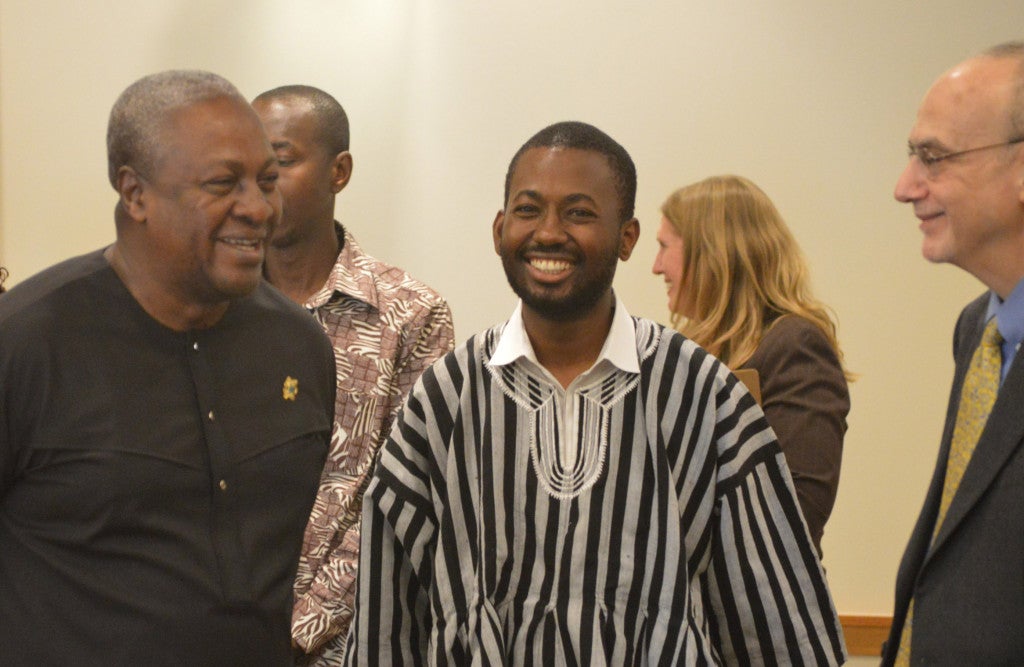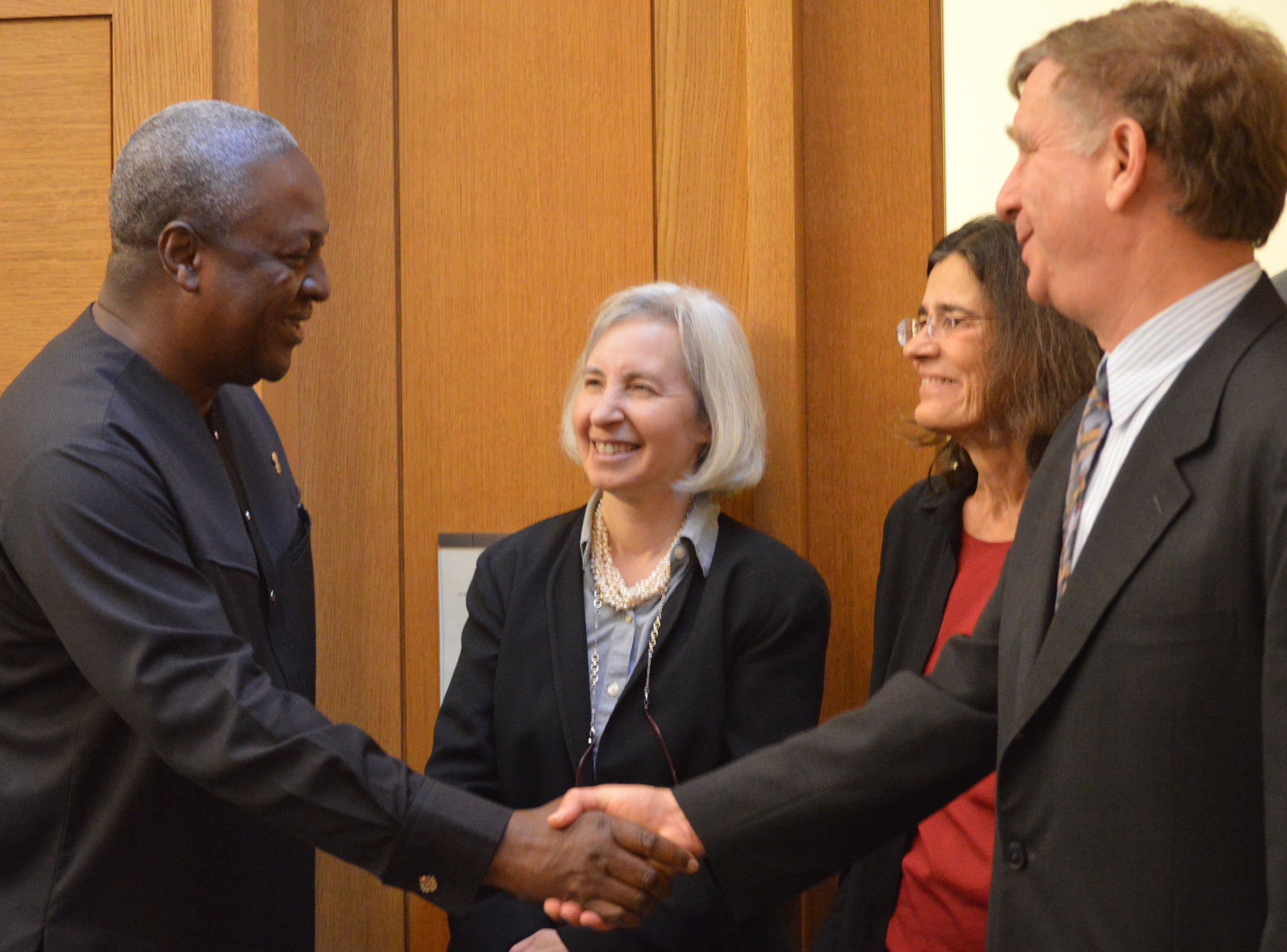
The president of the Republic of Ghana, John Dramani Mahama, visited Harvard Law School on Friday, Sept. 26, to meet with Dean Martha Minow and to attend a private lunch hosted by the Human Rights Program.
At the lunch, which was co-hosted by the Committee on African Studies, and the Hutchins Center for African & African-American Research, the president thanked Harvard University, Harvard Law School, and the Human Rights Program for training several of his ministers and staff.
“Their experiences and learning here have helped to improve the quality of human resources in my administration,” Mahama said.
The president’s Executive Secretary, Raymond Akongburo Atuguba, LL.M ’00, SJD ’04, sat nearby as he spoke. An alumnus of the Human Rights Program, Atuguba recently participated as a panelist at the program’s 30th anniversary event.
The president went on to focus on the promotion and protection of human rights, which he described as a central concern of the Ghanaian government. After so many years of political turmoil, he said, the authors of the 1992 constitution took pains to highlight their importance.
“We wrote every right into that Constitution,” he said.
Mahama detailed a wide-ranging and ongoing effort to realize those rights for Ghanaians, citing significant judicial reforms; legislation to strengthen the inheritance rights of women; and a free and flourishing press. Still, he said, securing economic and social rights for all remains a challenge.
“We in Ghana are looking forward to the day when no woman will die whilst giving life; when teenage pregnancy will not halt a girl’s education; when every family will have food on the table, access to healthcare and is capable of sending all their children to school,” he said.

The president’s day-long visit to Harvard included a meeting with Harvard University President Drew Faust and a public address at Harvard Kennedy School’s Institute of Politics John F. Kennedy Jr. Forum, titled “Economic Governance in Uncharted Waters.” (Read the Kennedy School’s coverage of the event.)
Mahama assumed the Office of President in July 2012, after the death of the late President John Evans Atta Mills. Mahama, who was serving as vice president, completed Mills’ unexpired term of office, before being popularly elected president by Ghana’s Electoral Commission in December 2012.
Earlier in his career, he served as a member of Parliament for the Bole-Bamboi Constituency in 1996. He was re-elected to parliament in 2000 and 2004 before becoming the vice-presidential candidate for the party in 2008. During his career, he served as Information, Culture and Research Officer at the Embassy of Japan in Accra and he worked for the Ghana Office of PLAN International, an international development charity.
Mahama attended the University of Ghana, Legon where he received his Bachelor of Arts Degree, in history, in 1981. He completed post-graduate studies in Communication at the University of Ghana in 1986, and later studied for a degree in social psychology from the Institute of Social Sciences in Moscow.
He recently published his first book, a memoir entitled “My First Coup D’etat and other true stories from the lost decades of Africa” (Bloomsbury).
Mahama arrived in the United States on Sept. 21 for the 69th Session of the United Nations General Assembly. In an address before the General Assembly, Mahama addressed the plight of Ebola patients in West Africa and the need to stem the spread of the disease. He also highlighted concerns from elsewhere in the world, from police brutality in the United States to civilian deaths in the Israeli-Palestinian conflict.
While in New York, Mahama hosted meetings with heads of state on the establishment of a South-South Energy Initiative, and, in a panel discussion sponsored by the International Labour Organization, he challenged multinational companies that rely on raw materials from the developing world to consider investing in processing facilities in these countries to help boost sustainable jobs.